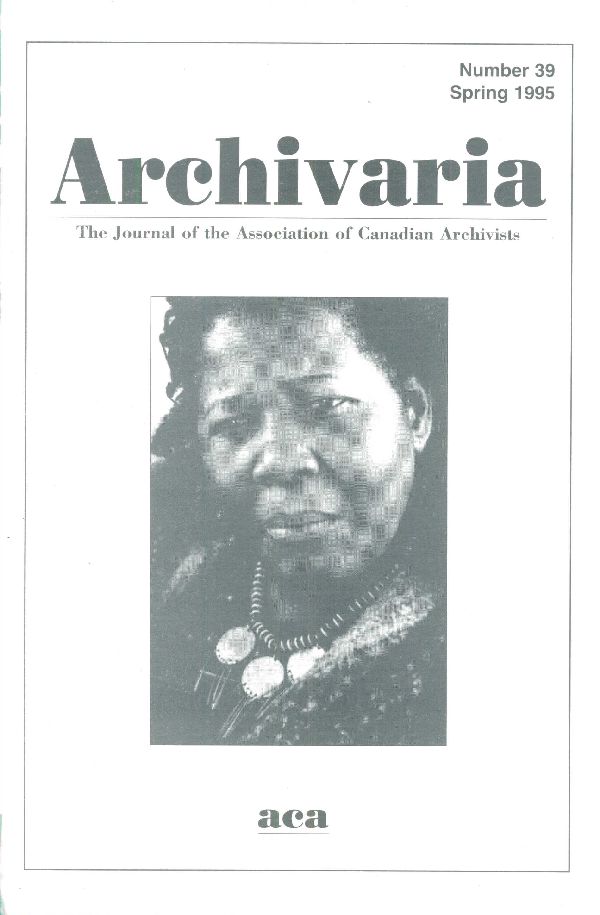Managing the Present: Metadata as Archival Description
Abstract
Traditional archival description undertaken at the terminal stages of the life cycle has had two deleterious effects on the archival profession. First, it has resulted in enormous, and in some cases, insurmountable processing backlogs. Second, it has limited our ability to capture crucial contextual and structural information throughout the life cycle of record-keeping systems that are essential for fully understanding the fonds in our institutions. This shortcoming has resulted in an inadequate knowledge base for appraisal and access provision. Such complications will only become more magnified as distributed computing and complex software applications continue to expand throughout organizations. A metadata strategy for archival description will help mitigate these problems and enhance the organizational profile of archivists who will come to be seen as valuable organizational knowledge and accountability managers.
RÉSUMÉ
Une description archivistique entreprise lors des dernières étapes du cycle de vie des documents a deux effets nuisibles sur la profession d'archiviste: d'abord elle crée un énorme, et parfois insurmontable, arrérage; ensuite, cette pratique limite notre capacité de saisir l'information contextuelle et structurelle tout au long du cycle de vie des systèmes de gestion des documents, lesquels sont essentiels à la pleine compréhension des fonds de nos institutions. Cette situation a résulté en un savoir incomplet qui rend difficile l'évaluation et complique l'accessibilité des documents. De telles complications n'iront que s'accroissant avec le développement rapide de l'informatique et l'utilisation de logiciels de plus en plus complexes dans les organisations. Une approche méta-informationnelle de la description archivistique aidera à résoudre ces problèmes et à rehausser le profil des archivistes qui seront progressivement perçus comme des gestionnaires au savoir précieux et responsables.
Authors of manuscripts accepted for publication retain copyright in their work. They are required to sign the Agreement on Authors' Rights and Responsibilities that permits Archivaria to publish and disseminate the work in print and electronically. In the same agreement, authors are required to confirm that "the material submitted for publication in Archivaria, both in its paper and electronic versions, including reproductions of other works (e.g. photographs, maps, etc.) does not infringe upon any existing copyright." Authors of manuscripts accepted for publication retain copyright in their work and are able to publish their articles in institutional repositories or elsewhere as long as the piece is posted after its original appearance on archivaria.ca. Any reproduction within one year following the date of this agreement requires the permission of the General Editor.





